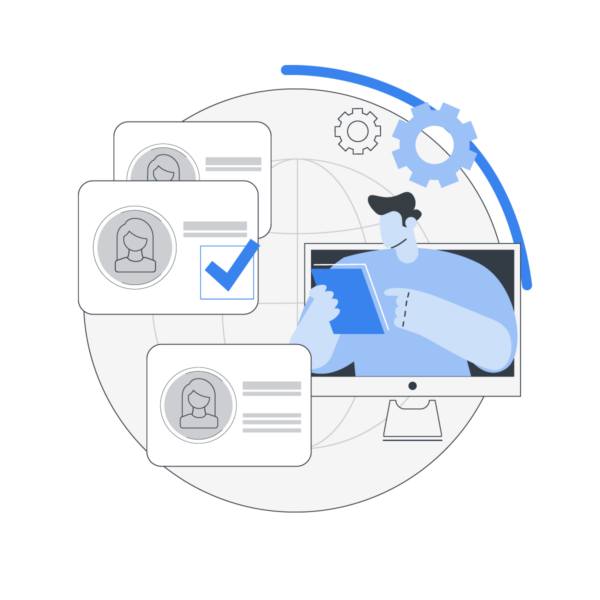Human Resource Guide to HR and Performance Management

While successful companies are always looking to leverage technology for growth and automation, there is also the element of managing how your staff perform, grow and succeed in their roles. In HR and performance management, the focus extends beyond annual reviews to a continuous process where managers provide ongoing feedback to align employee performance with organisational goals.
Performance management for managers involves nurturing growth rather than just evaluating performance. By adopting world’s best practices around staff performance management strategies, HR performance management supports employee development and enhances overall effectiveness.
The result? A more dynamic and engaged workforce, driving success for both individuals and the organisation.
Let’s look at the link between HR and performance management to see why they are the key to organisational success.
What Is Performance Management
Performance management is a crucial aspect of business operations, designed to help managers monitor and evaluate employee performance effectively. This approach creates an environment where employees understand what their individual goals and objectives are, how their work aligns with the organisation’s goals and how they can perform at their best in their job function.
Unlike traditional end of year reviews, performance management for managers involves continuous interactions that foster learning and development. Key components of performance management include setting and measuring goals, defining effective performance, and implementing processes for ongoing assessment.
Performance management software can help streamline these processes, enhancing staff performance management as well as HR functions overall. Through these tools, HR performance management supports a dynamic approach to improving individual and organisational success.
HR And Performance Management
The role of HR in performance management is essential for creating and maintaining effective systems that support both managers and employees. This is supported by evidence in studies by organisational think-tanks, and through measuring organisational performance. The two are tightly coupled.
HR and performance management involve designing and implementing procedures that guide performance evaluations and development. Performance management for managers relies on HR’s expertise to ensure the processes are reliable and effective. HR departments play a critical role in facilitating constructive conversations between managers and employees, enhancing staff performance outcomes. By providing guidance and support, HR performance management helps improve an individual’s chance of being successful in their role, while also contributing to employee satisfaction and retention.
Performance Management Best Practices
Implementing performance management strategies can significantly improve employee engagement and productivity.
Here are 5 performance management best practices used by successful organisations worldwide:
- Agile Goal Setting and OKRs: Implementing agile goal setting and Objectives and Key Results (OKRs) can greatly enhance HR and performance management. This approach ensures that goals are aligned with organisational objectives and can be adjusted as needed, improving outcomes and providing clear, measurable targets for employee performance management.
- Ongoing Development Conversations: Engage in continuous development conversations to keep performance management flexible and relevant. Regular discussions between managers and employees support ongoing feedback and professional growth, which is vital for effective staff performance management.
- Continuous 360 Feedback: Use continuous 360 feedback to support employee performance management. This practice involves gathering feedback from various sources, including peers, subordinates, and supervisors, to provide a comprehensive view of performance. Implementing this in your performance management system fosters a culture of continuous improvement and enhances employee growth and skills to perform their roles skillfully.
- Social Recognition of Performance: Incorporate social recognition of performance to boost morale and motivation among staff. Recognising and celebrating achievements publicly can positively impact staff performance management and encourage a more engaged and productive workforce, making HR and performance management more effective for employees and organisations.
- Involve Employees in Design: Involve employees in the performance management design process to foster a sense of ownership and engagement. When employees have a say in how performance management systems are developed, it enhances their commitment and engagement with the process. This leads to better outcomes for both managers and employees.
Enhancing Performance Management with HR Management Software
To achieve success in performance management, embracing a continuous and flexible approach is crucial. This goes beyond traditional reviews by focusing on ongoing feedback and nurturing growth, allowing managers to align employee performance with organisational goals more effectively.
Using HR management software and performance management software can significantly streamline this process. Implementing best practices such as agile goal setting, continuous development conversations, and 360 feedback fosters a dynamic and engaged workforce.
Additionally, incorporating social recognition and involving employees in the design of performance management systems enhances overall effectiveness. With HR playing a pivotal role in guiding and supporting these processes, organisations can leverage these tools to create a more productive and successful work environment, driving both individual and collective achievement.
Unlock the full potential of your team with advanced HR management software. Discover how performance management tools can drive success and enhance employee engagement. Start optimising your performance management strategy today!
